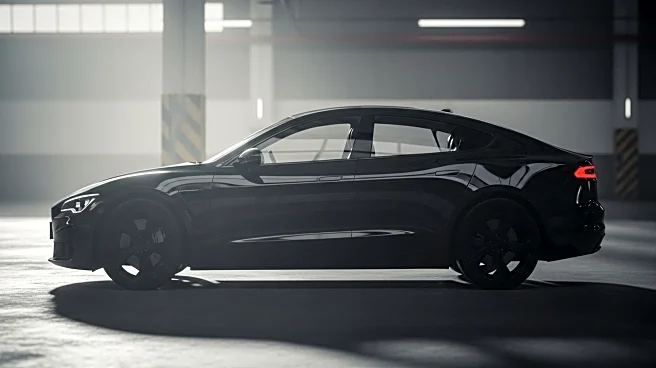What's Happening?
Fisker, an electric vehicle startup founded by Henrik Fisker, has filed for Chapter 11 bankruptcy protection following a series of production setbacks and safety issues with its Ocean SUV. The company faced multiple challenges, including failing to meet production targets, software and mechanical problems, and several federal safety investigations. Fisker attempted to raise capital through convertible notes and laid off a significant portion of its workforce to preserve cash. Despite efforts to pivot its business model and secure partnerships, Fisker struggled with financial distress and ultimately filed for bankruptcy in June 2024.
Why It's Important?
Fisker's bankruptcy highlights the difficulties faced by new entrants in the electric vehicle market, particularly in maintaining production quality and financial stability. The company's struggles underscore the importance of robust operational processes and the challenges of scaling production in a competitive industry. Fisker's failure impacts its employees, investors, and customers, and raises questions about the viability of startups in the EV sector. The bankruptcy also affects the broader market, as it may deter investment in similar ventures and influence regulatory scrutiny on vehicle safety standards.
What's Next?
Fisker is undergoing liquidation proceedings, with plans to sell its remaining inventory and assets. The bankruptcy court has approved the sale of over 3,000 Ocean SUVs to a leasing company, which will help repay creditors. The company is also addressing outstanding recalls and safety issues, with the Department of Justice intervening to ensure compliance with legal standards. Fisker's founders have reduced their salaries to support the bankruptcy process, and a trustee has been appointed to oversee the sale of non-vehicle assets. The outcome of these proceedings will determine the future of Fisker's operations and its impact on stakeholders.
Beyond the Headlines
Fisker's collapse raises ethical and legal questions about corporate governance and accountability in the EV industry. The company's handling of customer payments and recall costs has drawn criticism, highlighting the need for transparency and consumer protection. The bankruptcy also reflects broader challenges in the transition to sustainable transportation, as companies navigate technological innovation, regulatory compliance, and market competition. Fisker's experience may influence future policy decisions and industry practices, shaping the landscape for electric vehicle development.









